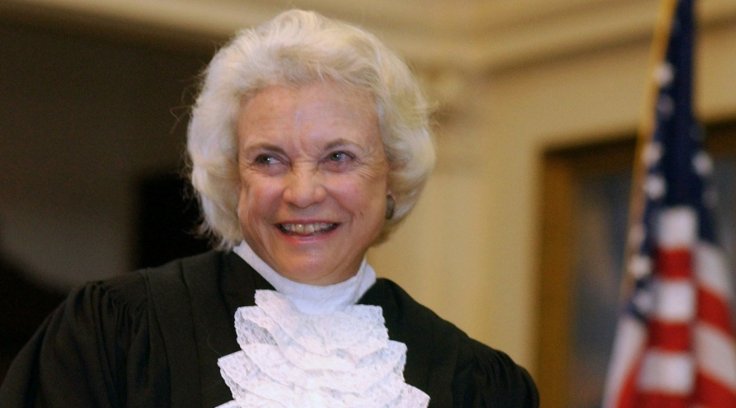Sandra Day O'Connor, the trailblazing first female justice on the Supreme Court, died in Phoenix, Arizona on Friday at the age of 93. O'Connor died from "complications due to advanced dementia," as stated by the court. Nominated by President Ronald Reagan in 1981, O'Connor received unanimous confirmation in the Senate.
She served on the Supreme Court from 1981 until January 2006, deciding to retire to care for her husband, who was suffering from Alzheimer's. A former lawyer, O'Connor was known as a moderate conservative and was considered a swing vote during the tenure of former Chief Justice William Rehnquist. Tributes have been pouring in since news of her death broke.
End of an Era

O'Connor often aligned with her conservative colleagues on the court, although at times, she also sided with the liberal justices.
O'Connor is best known for her co-authorship of the majority opinion in the 1992 case Planned Parenthood v. Casey, where the justices determined that state laws limiting abortion should not impose an "undue burden" on women seeking the procedure.

"Some of us as individuals find abortion offensive to our most basic principles of morality, but that can't control our decision," O'Connor said from the bench, as she read a summary of the decision. "Our obligation is to define the liberty of all, not to mandate our own moral code."
The ruling in Planned Parenthood v. Casey was overturned in June 2022 by the court's decision in Dobbs v. Jackson Women's Health Organization. The latter ruling shifted the responsibility for deciding restrictions on the procedure back to the states.
The opinion in Dobbs v. Jackson Women's Health Organization, overturning Planned Parenthood v. Casey, was written by O'Connor's successor, Samuel Alito.

Additionally, O'Connor joined the majority opinion in Bush v. Gore, a pivotal case that concluded the weeks-long uncertainty of the 2000 presidential election by rejecting then-Vice President Al Gore's calls for a recount in Florida.
O'Connor also authored the decision in 2003's Grutter v. Bollinger, affirming that affirmative action programs based on race did not violate the 14th Amendment. However, the decision was overturned by the high court in June.
Leaving Behind Her Legacy
As the granddaughter of a pioneer who ventured west from Vermont and founded the family ranch decades before Arizona's statehood, O'Connor possessed a tenacious and independent spirit.

Growing up in the remote outback as a child, she acquired early skills in riding horses, rounding up cattle, and operating trucks and tractors.
"I didn't do all the things the boys did," she told Time magazine in 1981, "but I fixed windmills and repaired fences."
Following her appointment to the Supreme Court, O'Connor remained the sole woman on the bench until 1993 when she was joined by Ruth Bader Ginsburg.
Presently, the Supreme Court comprises four women: Amy Coney Barrett, Ketanji Brown Jackson, Elena Kagan, and Sonia Sotomayor.

O'Connor was held in high regard by many of her colleagues.
After her retirement, Justice Clarence Thomas referred to her as "an outstanding colleague, civil in dissent and gracious when in the majority." Despite her generally affable demeanor, O'Connor could express her views with a sharp wit when necessary.
In one of her last acts as a justice, O'Connor issued a dissent in a 5-4 ruling that permitted local governments to condemn and seize personal property for private developers to construct shopping plazas, office buildings, and other facilities. In her dissent, she cautioned that the majority had imprudently granted additional power to the influential.









